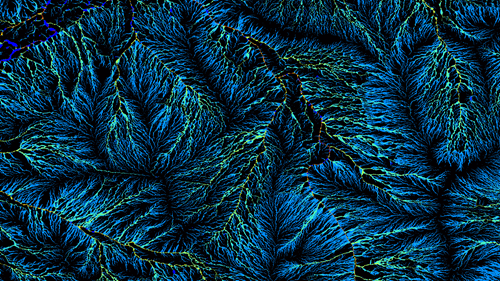A mask to protect military personnel from toxic chemical gases and vapours is nominated for Outstanding Science in Safeguarding Australia.
A real-time surveillance system for human infectious diseases, called DiNeMo (Disease Networks and Mobility), is nominated for Excellence in Interdisciplinary Scientific Research.
And young Indigenous astrophysicist Karlie Noon, a student co-supervised by CSIRO and ANU, has been nominated for the 3M Eureka Prize for Emerging Leader in Science.
Known as the 'Oscars' of Australian science, the Australian Museum Eureka Prizes are Australia's leading science awards and offer a unique co-operative partnership between government, education and research institutions and private sector companies to recognise and support scientific excellence.
CSIRO's Chief Scientist, Dr Cathy Foley, said the CSIRO teams were unlocking a better future for everyone.
"CSIRO's purpose is to solve the greatest challenges through innovative science and technology, so it's great to see world-class research contributing to a secure Australia and region," Dr Foley said.
"So much of CSIRO's research draws on the great depth and breadth of our expertise, and collaboration is at the heart of these innovations.
"And at a time when fewer young women are studying science, role models like Karlie set an inspirational example for our curious and passionate scientists and leaders of the future."
Finalist for the Outstanding Science in Safeguarding Australia prize, Associate Professor Matthew Hill, said his team has been working with the Australian Defence Force to develop the most capable respirator canister in the world.
"We combine nanofibers and metal organic frameworks (MOFs) to filter particles and capture vapours, keeping the wearer safer for longer," he said.
"Nanofibers are super light filters that can stop particles from getting through, and MOFs are the world's most porous materials that soak up vapour like a sponge."
CSIRO researcher Dr Dean Paini said the DiNeMo system, finalist for the Excellence in Interdisciplinary Scientific Research prize, aims to protect Australia against the increasing risk of infectious diseases like dengue and measles.
"If we understand how these infections spread once they reach Australia, it means we can predict when an outbreak is likely to occur, and ensure hospitals and biosecurity agencies are as prepared as possible," Dr Paini said.
The CSIRO finalists for the 2019 Australian Museum Eureka Prizes are:
Defence, Science and Technology Eureka Prize for Outstanding Science in Safeguarding Australia
The Broad Spectrum Respiratory Canister Team, CSIRO; Defence Science and Technology Group; Monash University; and Spectrum Innovation Pty Ltd
This collaborative project has led to the development of new respirator canister technology that can protect military personnel from weaponised toxic chemical gases and vapours.
This offers a step change from existing technology which sometimes provides only minimal protection, giving soldiers a greater chance to safely complete their mission.
UNSW Eureka Prize for Excellence in Interdisciplinary Scientific Research
DiNeMo, CSIRO
DiNeMo (Disease Networks and Mobility) is a real-time surveillance system for human infectious diseases, such as dengue.
By combining expertise, data and methods from epidemiology, transport engineering, biosecurity and data science, DiNeMo enables hospitals and biosecurity agencies to predict when and where a disease outbreak is likely to occur, enabling efficient diagnosis and treatment.
3M Eureka Prize for Emerging Leader in Science
Karlie Noon, Australian National University and CSIRO
Karlie Noon is a Kamilaroi woman and an astrophysicist. Since becoming the first Indigenous person in New South Wales to graduate with degrees in science and mathematics, she’s worked to engage underrepresented communities in science.
Karlie Noon has influenced government policy, appeared in television programs and shaped perceptions on Indigenous knowledge systems.
The Australian Museum Eureka Prizes will be held in Sydney on Wednesday 28 August.
For a full list of prize partners please visit Eureka Prizes Partners.

